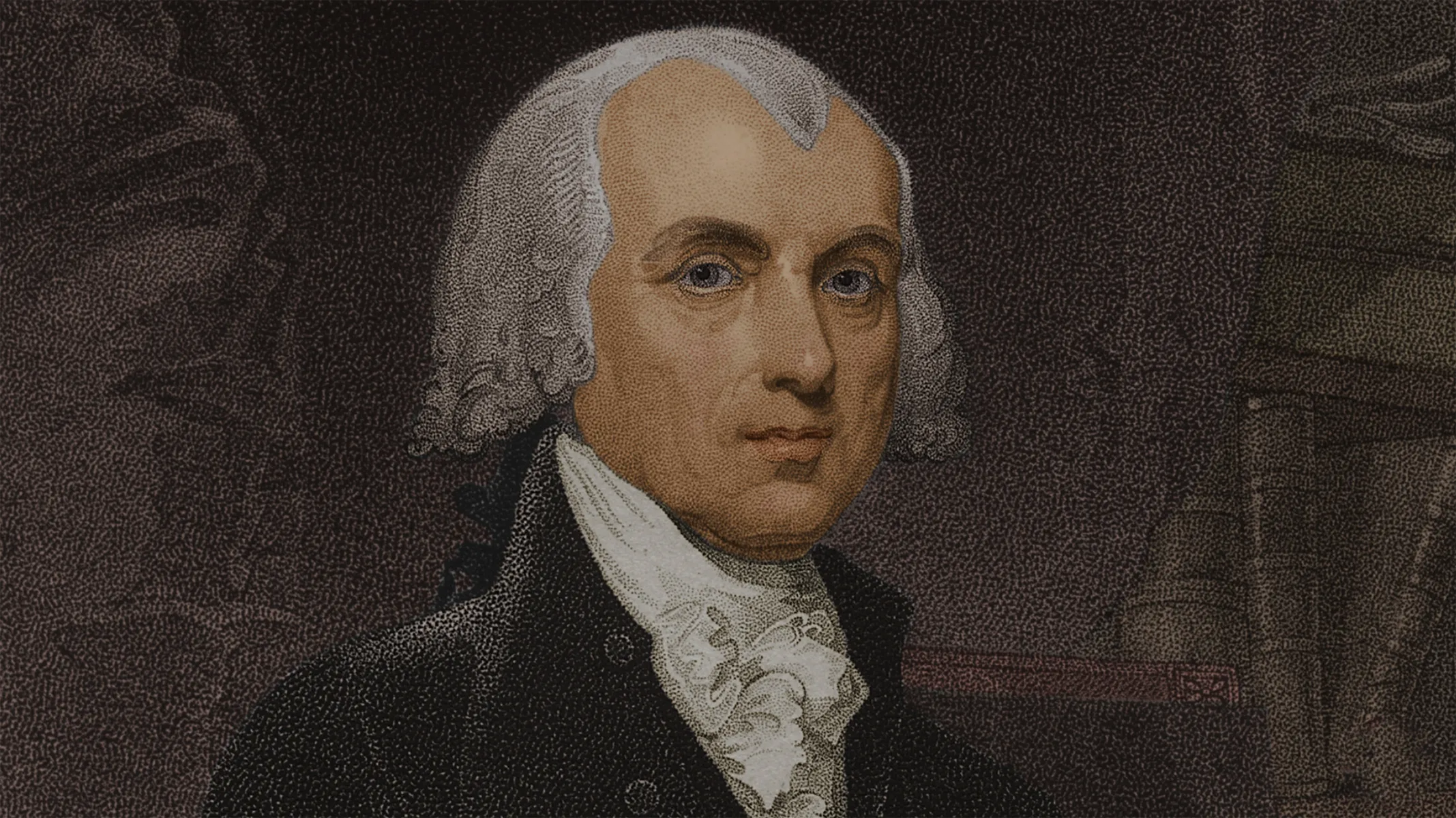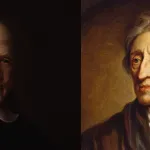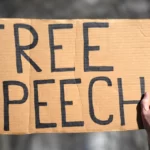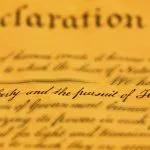I often pose this question to people that ask me about the constitution and more specifically the Bill of Rights, what is the most important word in that document? The answer…” the.” This determiner, or more specifically, this definite article changes the entire meaning of the Bill of Rights and expresses in a beautiful way what the founders understood as the basis of our government. Allow me to provide context before proceeding to the substance.
In 16th-century Europe, there arose a political doctrine called the Divine Right of Kings. This political doctrine was a defense of monarchical absolutism, which asserted that kings derived their authority from God and could not, therefore, be held accountable for their actions by any earthly authority such as a parliament. This meant that no earthly power could reign in the power of the King. He could whatever he wanted with no recourse. Monarchs were asserting their authority over matters of the church as was as all secular matters.
Two proponents of this theory Jacques-Bénigne Bossuet and Sir Richard Filmore argued that the state was a family and that the king was a father, but he claimed, in an interpretation of Scripture, that Adam was the first king and that Charles I (reigned 1625–49) ruled England as Adam’s eldest heir. John Locke, Two Treatise on Government refuted Filmer’s ideas. Locke claims that Filmer’s doctrine defies “common sense.” The right to rule by descent from Adam’s first grant could not be supported by any historical record or any other evidence, and any contract that God and Adam entered into would not be binding on remote descendants thousands of years later, even if a line of descent could be identified. His refutation was widely accepted as decisive, and in any event the theory of the divine right of kings ceased to be taken seriously in England after 1688. With the Divine Right of Kings being disputed there was a void in place. If rights didn’t come from the Kings edict then where did they come form?
Locke argued that rights come from our humanity. He stated that “The reason why men enter into society is the preservation of their property.” He further defined what he meant by property when he said “Every man has a property in his own person. This nobody has a right to, but himself.” His point was clear, neither kings, clergy, nor anyone could grant rights. This was inherent in our humanity. Every human being had inherent rights to property. This was the SOLE reason that people created society, to preserve their property. They were not subservient to anyone by nature. This idea of natural rights permeated throughout England and into the colonies.
At the time of the writing of the constitution, this idea was full throttle. The founders were concerned that people would perceive that rights came from the government. In the process of ratifying the constitution, James Madison, known as “little Jimmy” due to his 4’8″ stature, was tasked to write amendments to the constitution because many founders believed that while the constitution was a sound document according to their understanding, it was not specific enough to guarantee natural rights. Initially, Alexander Hamilton had convinced James Madison that amendments were not necessary. However, Thomas Jefferson later convinced him otherwise.
The ten amendments to the constitution all contain negative rights, in other words, they don’t grant anything, they only restrain the government. This is important to point out because many founders did not believe in positivism, which is the political philosophy that the law means whatever the lawgiver decides it means. The theory also posits that the majority decides what rights are. The majority can command the government to refrain from interfering with rights or permit the government to interfere with them. This was an idea that many founders feared. It would be too easy for the majority to become tyrannical.
To combat this idea of majority rule James Madison mad sure that the word “the” was included in the amendment process. This definite article makes it clear that rights precede government. In other words, government did not grant the rights in the Bill of Rights and as such cannot take them away.
Without the word “the” it could be and most certainly would have been argued that those rights were granted by the Bill of Rights and could therefore be voted out through the amendment process. By placing the word “the” on the document James Madison made it abundantly clear that those rights were not given by the government but protected by the government and could not be taken away by government because they existed as a real entity before government ever existed.
Amendment I
Congress shall make no law respecting an establishment of religion, or prohibiting the free exercise thereof; or abridging the freedom of speech, or of the press; or the right of the people peaceably to assemble, and to petition the Government for a redress of grievances.
Amendment II
A well regulated Militia, being necessary to the security of a free State, the right of the people to keep and bear Arms, shall not be infringed.
Amendment III
No Soldier shall, in time of peace be quartered in any house, without the consent of the Owner, nor in time of war, but in a manner to be prescribed by law.
Amendment IV
The right of the people to be secure in their persons, houses, papers, and effects, against unreasonable searches and seizures, shall not be violated, and no Warrants shall issue, but upon probable cause, supported by Oath or affirmation, and particularly describing the place to be searched, and the persons or things to be seized.
Amendment V
No person shall be held to answer for a capital, or otherwise infamous crime, unless on a presentment or indictment of a Grand Jury, except in cases arising in the land or naval forces, or in the Militia, when in actual service in time of War or public danger; nor shall any person be subject for the same offence to be twice put in jeopardy of life or limb; nor shall be compelled in any criminal case to be a witness against himself, nor be deprived of life, liberty, or property, without due process of law; nor shall private property be taken for public use, without just compensation.
Amendment VI
In all criminal prosecutions, the accused shall enjoy the right to a speedy and public trial, by an impartial jury of the State and district wherein the crime shall have been committed, which district shall have been previously ascertained by law, and to be informed of the nature and cause of the accusation; to be confronted with the witnesses against him; to have compulsory process for obtaining witnesses in his favor, and to have the Assistance of Counsel for his defence.
Amendment VII
In Suits at common law, where the value in controversy shall exceed twenty dollars, the right of trial by jury shall be preserved, and no fact tried by a jury, shall be otherwise re-examined in any Court of the United States, than according to the rules of the common law.
Amendment VIII
Excessive bail shall not be required, nor excessive fines imposed, nor cruel and unusual punishments inflicted.
Amendment IX
The enumeration in the Constitution, of certain rights, shall not be construed to deny or disparage others retained by the people.
Amendment X
The powers not delegated to the United States by the Constitution, nor prohibited by it to the States, are reserved to the States respectively, or to the people.





